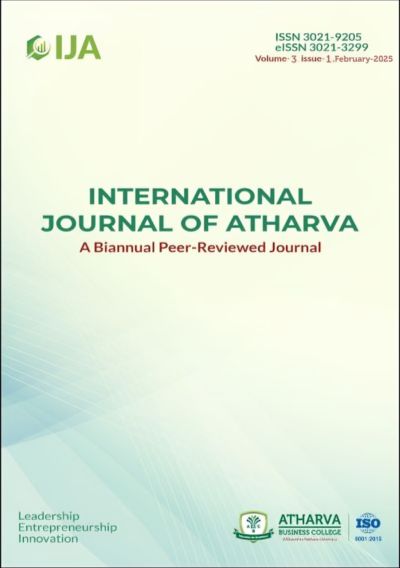Health-related Quality of Life among Undergraduate Students
DOI:
https://doi.org/10.3126/ija.v3i1.76725Keywords:
Health-related, Undergraduate, Quality, Life, Students, life, studentsAbstract
This study aimed to assess the health-related quality of life among undergraduate students and examine gender-based differences in perceptions of quality of life. A descriptive research design was employed, with data collected from 236 undergraduate students across various colleges in Kathmandu. Participants were selected using a convenience sampling technique, ensuring inclusivity of diverse perspectives. The study examined multiple dimensions of quality of life, including general well-being, satisfaction with health, impact of physical pain, medical treatment needs, enjoyment of life, meaningfulness, concentration ability, safety perception, and environmental health. The findings indicate that 52.1% of students rated their quality of life as "Moderate," with 25.0% rating it "Quite a bit," and 11.9% perceiving it as "A little." Additionally, 38.6% reported moderate satisfaction with their health, while 28.8% were quite a bit satisfied. Regarding the impact of physical pain on daily activities, 36.4% reported being hindered "A little," whereas 5.1% faced extreme hindrance. Notably, 53.0% of students reported no need for daily medical treatment. Enjoyment of life was reported as "Extreme" by 34.3%, while 32.6% found their lives "Quite a bit" meaningful. To examine gender differences, an independent samples t-test was conducted on overall quality of life scores. Results indicated a statistically significant difference between male (M = 3.42, SD = 0.89) and female students (M = 3.18, SD = 0.96), t(234) = 2.14, p = 0.034. This suggests that male students reported a slightly higher quality of life compared to their female counterparts. The study highlights key insights into student well-being and emphasizes the need for targeted interventions to enhance health-related quality of life, particularly among female students. Future research should explore additional factors influencing these perceptions and develop strategies to address gender disparities in well-being.
Downloads
Downloads
Published
How to Cite
Issue
Section
License
Copyright (c) 2025 Nikita Paudel, Hom Prasad Adhikari, Pushkar Singh Raikhola

This work is licensed under a Creative Commons Attribution-NonCommercial 4.0 International License.





